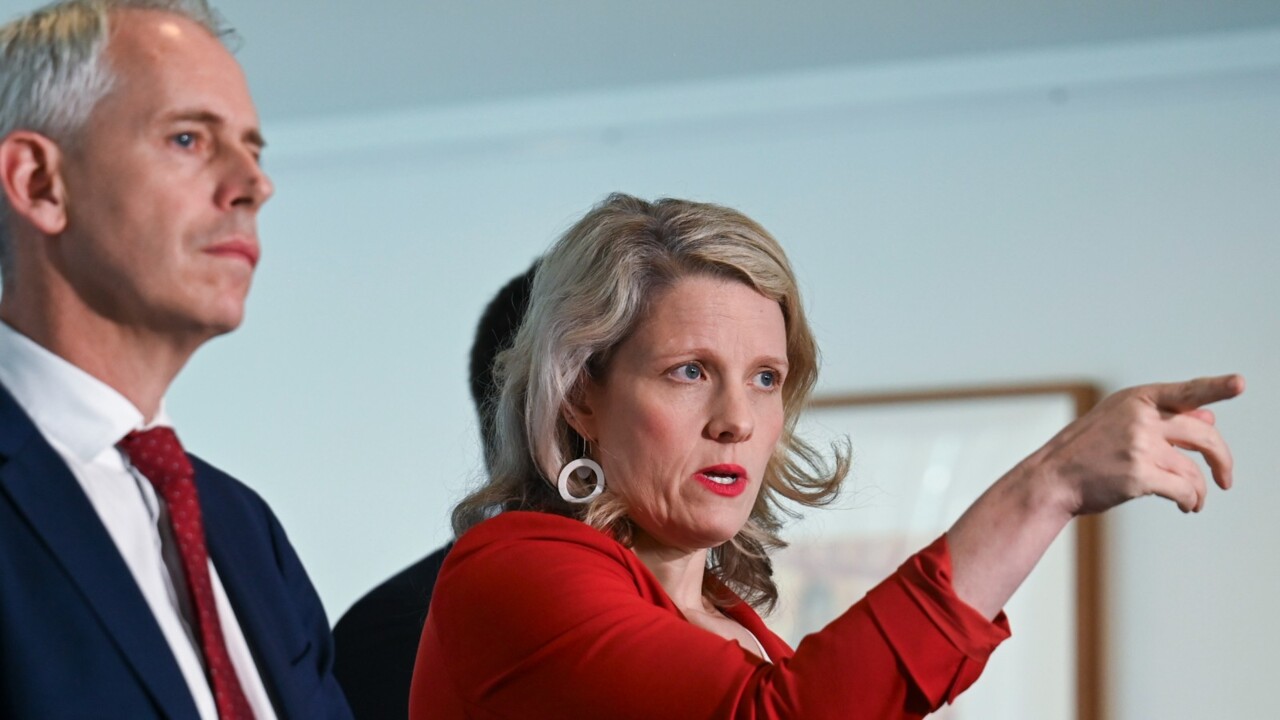Immigration farce draws O’Neil, Giles into Custer’s last stand

This is what is happening to the Albanese government around indefinite migration detention. Thanks to the decisions of the High Court, every safe assumption about detention is freewheeling downhill.
There is no steering wheel and no brake on this infernal machine. The High Court is pivotal here. The government did not make this problem. Both Albanese and predecessors such as Scott Morrison relied on existing legal precedents to allow indefinite detention of people with criminal pasts who could not be deported to any other country.

It was the High Court’s decision in NZYQ that blew apart the raft of deportation. This could just as easily have happened under a Coalition government.Albanese was the one standing in the wrong place at the wrong time. It is true that just about every constitutional lawyer was nervy about the legal basis for indefinite detention, and some High Court judges had made rumbling sounds. But the belief was that the High Court would at least be sufficiently practical not to make a decision that would let loose a small wave of criminal entrants into Australia. So much for betting on the common sense of judges.
The role of the court is central to the current mess. There are plenty of gleeful critics of Albanese saying this is merely a decision of a court, and therefore can be overruled by parliament.
This is utterly wrongheaded. When the High Court interprets the Constitution, its decision becomes a matter of constitutional law. There is no overriding the Constitution other than through a referendum, and we know how those go. Actually, the situation of the government is even worse than one exocet High Court decision. It is clear to experienced constitutional ball gazers that the court is on a roll. It detests the merest whiff that an executive officer might exercise a judicial role. Like a minister indefinitely detaining an illegal immigrant.
Like it or not, this is the stuff courts love best: defending their constitutional role against encroachment by the executive. Judging by the NZYQ decisions, there is plenty more to come. New Chief Justice Stephen Gageler is a great enthusiast for the separation of judicial and executive power, and he is just hitting his straps.

Of course, the question for Anthony Albanese, Home Affairs Minister Clare O’Neil and Immigration Minister Andrew Giles is the same as it was for General Custer at the Battle of Little Big Horn. What do we do next?
The government very properly rushed in its own highly focused indefinite detention laws to plug the gap left by the High Court’s most recent decision. Contrary to popular geniuses, it could not have had legislation ready to go. It needed to understand the exact contours of the court’s judgment.
But there’s the rub. If the High Court really is like a smoking Vesuvius, just waiting to spew more lava on to commonwealth detention policy, Albanese can have no exact idea where it will strike next.
To take the most obvious example, the court might invalidate some aspects of the laws rushed through to restrain the mayhem. In that event, the situation would become even worse. Some government lawyers hope further decisions by the court might helpfully clarify the position. But the High Court is not known for providing blueprints. It interprets the Constitution as it sees it.
Realistically, the hundreds of junior lawyers slaving their way through thousands of pages of immigration documents are not going to save the situation. There are far more bitter steps that will have to be taken.
Political correctness aside, we know perfectly well which countries are statistically much more likely to produce criminals and terrorists among aspiring migrants or applicant refugees. We also know which countries are pretty safe. Putting it as nicely as we can, we should try to solve these problems of undesirable intake looking to the future, rather than playing catch-up. So far as possible, we should define out of our migration intake citizens of countries most likely to cause us criminal or terrorist trouble.

We have to accept that this would mean losing any number of people who have done nothing wrong. So be it. Every nation state has the right and obligation under international law to defend its borders and citizens.
In terms of necessary migration, we are not going to fall short. We have queues of people from low-risk countries with desirable skills begging to come. Indian engineers and Philippine nurses are good examples.
This sort of hard strategic forward planning is the only way an Australian government can free itself from the current cycle of assess, detain, release. Regrettably, there are some very hard questions for Albanese about O’Neil and Giles. Our system is one of responsible government. Put simply, politicians who become ministers for fiasco should resign or be sacked. Much of the current mess cannot be blamed on O’Neil or Giles, but some can. Anyway, they are the ministers in charge. When a battleship hits a mine, no captain can say it really was not his fault. They need to consider their future. Of course, exactly the same rule would have applied to Scott Morrison when he was immigration minister.
In the meantime, chaos reigns. It is time to develop policy settings to resolve these catastrophes before they happen.
Emeritus professor Greg Craven is a constitutional lawyer.






There are three levels of horror for a government. A situation can be bad, or even escalate to being disastrous. But worst of all is disintegration, where an entire public issue falls apart like a crumbling iceberg.